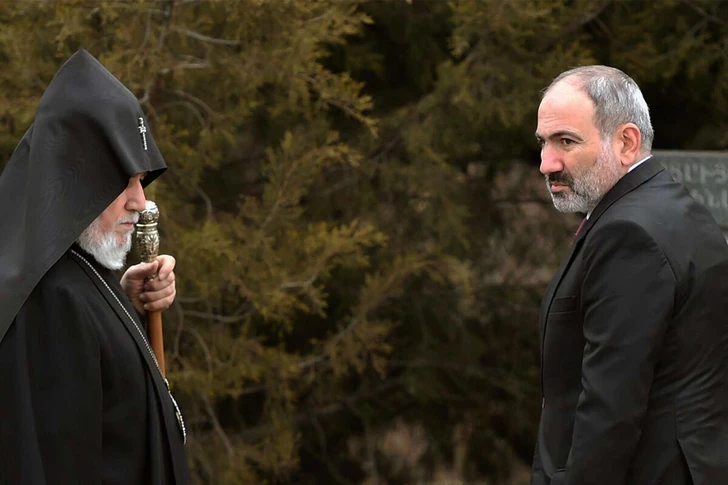BAKU, July 31 — Armenia’s domestic political landscape is becoming increasingly volatile as Prime Minister Nikol Pashinyan’s government appears to be entering early campaign mode ahead of the country’s 2026 elections. Yet beneath the surface lies a deeper dilemma: the very survival of Armenia as a sovereign state may hinge on whether the ruling force can navigate a rising tide of internal disillusionment and geopolitical pressure.
The core threat to Pashinyan’s continued rule, however, may not stem from any credible opposition but from widespread voter apathy. According to a recent survey by the International Republican Institute (IRI), 61% of Armenians say they do not trust any political party. Nearly half of respondents — including 54% of young adults and 52% of middle-aged voters — believe the country is headed in the wrong direction. More worryingly, 48% of youth oppose a peace treaty with Azerbaijan.
This disconnect reflects more than just electoral fatigue — it signals the public’s rejection of the government’s vision of a “realistic Armenia,” one that renounces all territorial claims against neighbors Azerbaijan and Turkey and seeks peaceful coexistence through regional integration.
Meanwhile, revanchist forces are gaining ground. The nationalist opposition, aligned with the Armenian Apostolic Church, continues to reject reconciliation with Azerbaijan. Both institutions maintain close ties to Russia and oppose a Baku-Yerevan peace deal that excludes Moscow. Armenia’s domestic media recently reported the reinforcement of Russia’s 102nd military base in Gyumri — a move interpreted by analysts as a Kremlin warning to Pashinyan’s pro-Western administration.
Moscow’s actions suggest it may be preparing to reassert control over the region through coercive means, potentially undermining a bilateral peace between Armenia and Azerbaijan. The Kremlin’s message is clear: any attempt at a regional order not brokered by Russia will be challenged — possibly with military force.
Such interference could derail not only the Baku-Yerevan normalization but also efforts to repair relations between Ankara and Yerevan. Azerbaijan views this trilateral reconciliation as the cornerstone of long-term stability in the South Caucasus — and as vital to Armenia’s survival as a sovereign state.
Regardless of whether Pashinyan retains power in 2026, Baku’s position will remain unchanged. Azerbaijan expects Armenia to fulfill its commitments to peace, which include amending its constitution, formally abandoning the OSCE Minsk Group framework, and implementing the Zangezur corridor project.
Any threat to a durable peace in the region will be treated as a threat to Azerbaijan’s national interests. As such, Baku signals that it is ready to act firmly — and without compromise — to neutralize internal and external actors who seek to use Armenia as a geopolitical tool against Azerbaijani sovereignty.


